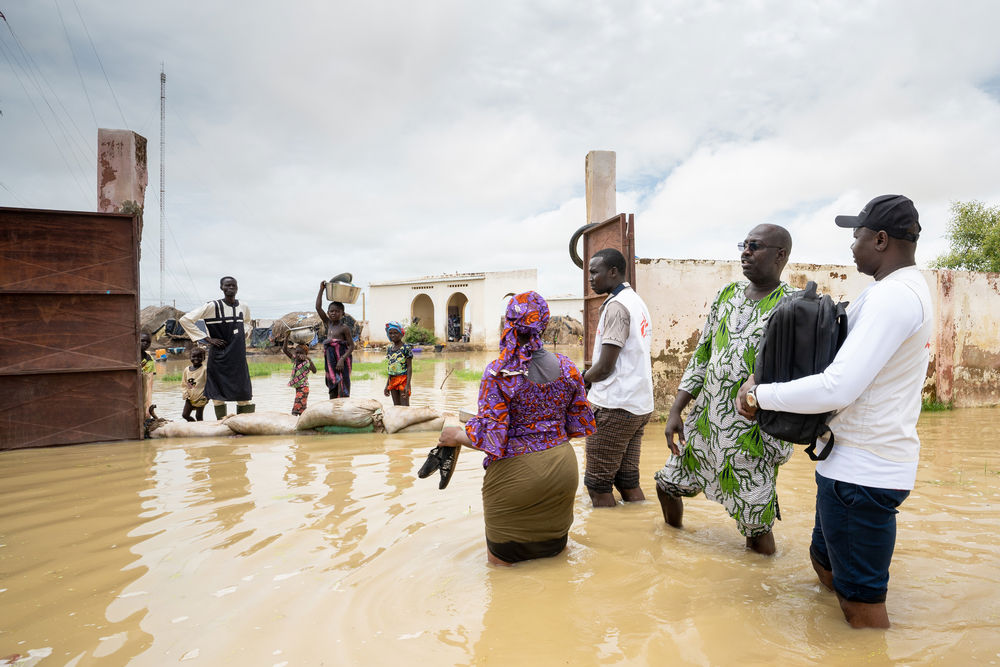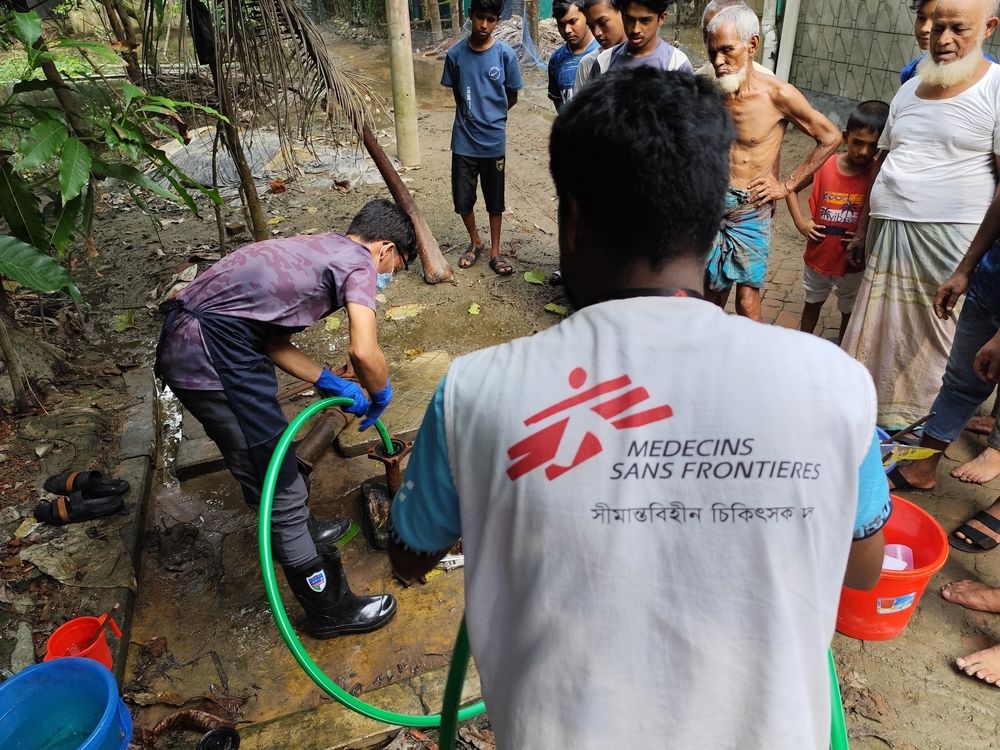Mali has experienced very heavy rains this year, causing flooding in several regions of the country, including Bamako. According to the Malian authorities, 47,000 people were affected in August, with around 100 injured and 30 dead as a result of the torrential rains.
In light of the damage and scale of the situation, on August 23 the government declared a state of national disaster and launched an appeal for international mobilisation.
In response to this emergency situation, MSF mobilised its medical and logistical teams and carried out assessments at flood-affected sites. “Families have lost all their belongings to the floods,” says Paul Solomon OKECH, MSF project coordinator in Douentza. “Their homes have been flooded or collapsed, and some have been rehoused in schools while others are living in the open air and sleeping on the ground. Sites hosting displaced people fleeing the violence have also been flooded, as in Ténenkou, further deteriorating their already precarious living conditions.
In support of the authorities, MSF teams brought relief to those affected by the floods by donating essential household items to 588 affected families, including 150 in the town of Ténenkou, 110 in the villages of Tinto and Golo in the commune of Bankass and 328 in the village of Dalla in Douentza.
Floods exacerbate the risk of epidemics, waterborne diseases and malaria, so MSF is also stepping up medical care for these diseases in Ténenkou and Douentza, as well as prevention measures in patient reception units and at the community level through awareness-raising activities.
For the first time since 1966, the high dykes in Ténenkou were unable to prevent the town from being completely flooded this year. Septic tanks are full of rainwater, filling wells and complicating access to clean water for daily consumption.
“We have facilitated access to drinking water in Ténenkou to prevent the development of certain waterborne diseases, and have strengthened our epidemiological surveillance system,” says GAMBA Felicite Chantal, MSF medical coordinator in Mali. “We have begun to provide temporary support to the Ténenkou central health centre and the Dalla health centre in Douentza in order to care for all victims during this crucial period, and we are running mobile clinics at sites where disaster victims have gathered. More than 100 people have already been seen at the Ténenkou sites.”
MSF is currently advocating for others humanitarian actors to provide more assistance to victims in terms of food, shelter and protection. This situation increases the vulnerability of communities already suffering from the consequences of the security crisis in the country which has lasted for over 10 years.
According to official forecasts, the country is still expected to see heavy rains this season, which could lead to further flooding. On September 26, the authorities placed several localities in the country under red alert, including certain districts of Bamako, where alert thresholds have been exceeded. MSF teams are ready to intervene.
Since 1985, MSF has been working in in collaboration with Malian health authorities in the regions of Gao (Ansongo), Timbuktu (Niafounké-Goundam), Kidal, Mopti (Ténenkou, Douentza, Koro), Ségou (Niono), Koutiala and Bamako.



